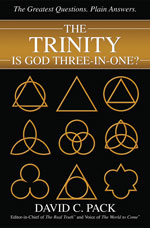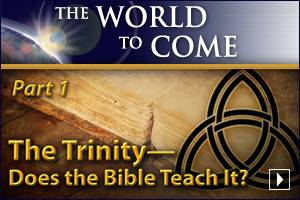This verse states, “Now the first day of the feast of unleavened bread, the disciples came to Jesus, saying unto Him, Where will You that we prepare for You to eat the Passover?”
What specific day does this verse speak of? Many would conclude by reading the verse that it is talking about the first day of the Feast of Unleavened Bread, a high Holy Day. Let’s examine this idea.
The King James Version italicizes the words “day” and “feast of.” Any time you see italicized words in the KJV, this tells you that these words were not found in the original texts (in this case, the original Greek). Italicized words were added by translators either to clarify the English, or because they thought it necessary to aid the overall meaning. A better translation of this verse is “Now [at] the first of unleavened bread, the disciples came to Jesus, saying unto Him, Where will You that we prepare for You to eat the Passover?”
The Greek word translated “first” is protos. It means the “foremost in time,” “foremost in order,” “beginning” or “to go before.” This precisely describes how the Passover always precedes or goes before the Days of Unleavened Bread. Leviticus 23:5-6 makes this pattern unmistakably clear.
God considers the previous day over, and a new one beginning, at sunset (Lev. 23:32). The conversation between Christ and the disciples took place at sunset on the 13th, the beginning of the 14th. Christ would introduce the New Testament Passover later that evening (Matt. 26:20).
Therefore, this verse is not referring to the Holy Day beginning the Feast of Unleavened Bread. It actually refers to the day before that, the 14th of Abib, also known as Passover day. This day is the final day in which to prepare for the upcoming Feast of Unleavened Bread, by putting all leavened bread out of the home (Ex. 12:18-19).
As a result, many in that day came to consider Passover day part of the Feast of Unleavened Bread. Josephus, the first-century Jewish historian, tells us that the eight-day spring festival period was commonly referred to as “the days of Unleavened Bread.” He also confirms that Passover day was the 14th—not the 15th, which is the first day of the Feast of Unleavened Bread, beginning at sunset (Antiquities of the Jews). Luke 22:1 also tells us that the word Passover was also often interchanged with the Days of Unleavened Bread, referring to the entire eight days.
So, Matthew 26:17 refers to the beginning of the 14th of Abib—Passover—not the 15th. Because translators did not understand what we have covered here, they mistakenly inserted “feast of.”


















